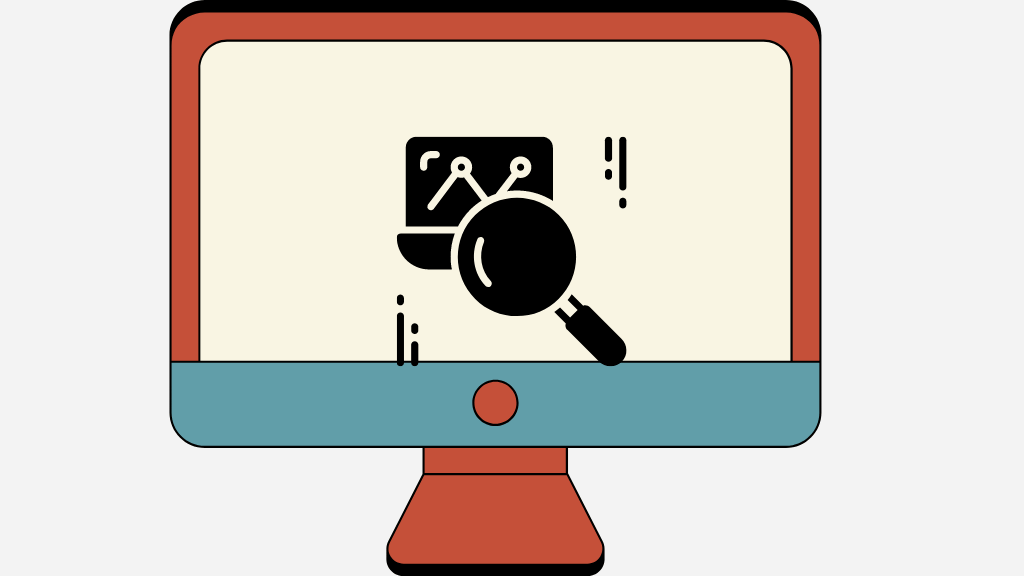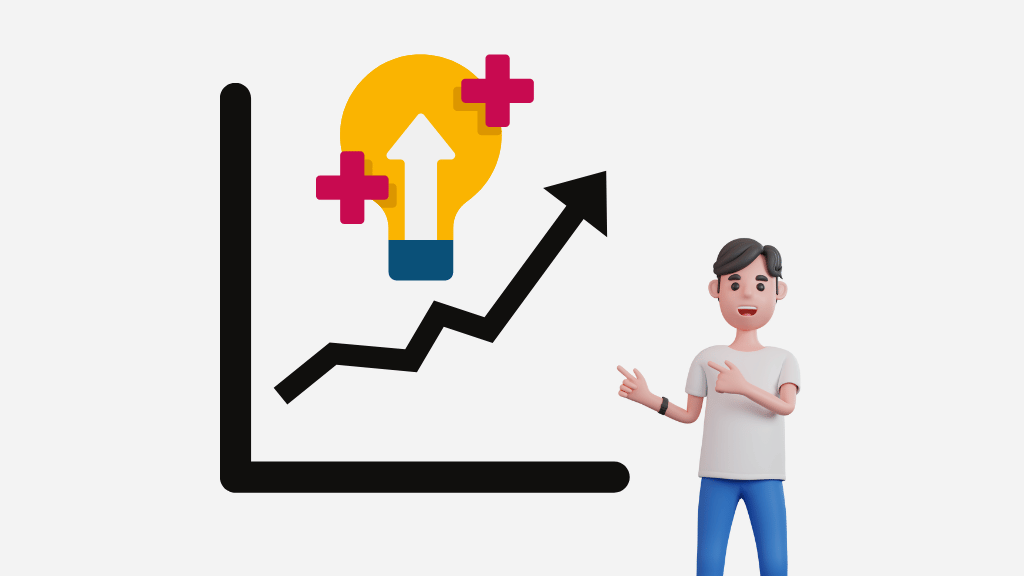Hello, marketers, entrepreneurs, and SEOs! Are you prepared to start on an exciting trip to discover the secrets of monitoring search engine ranking? If you want to dominate search engine results and create significant traffic to your website by relying on statistics, you’ve come to the perfect spot.
So, why is monitoring so important for marketing success?
Consider the following: You’ve put in place an SEO plan, optimized your website, and created fantastic content.
How can you know whether it’s all worth it?
How can you keep track of your progress and make educated decisions to climb the ranks?
This is where SEO monitoring comes into play. It’s like having a powerful telescope that can see beyond the horizon, revealing the data and insights you need to stay ahead of the competition. You can discover areas for improvement, correct SEO difficulties, and make data-driven adjustments that can catapult your online exposure by tracking important metrics and indications.
Before we go into the nitty-gritty, let’s first grasp the cornerstone of monitoring search engine ranking. In the next part, we’ll define it and explain why it’s important in the broader scheme of marketing success. Prepare to have your head blown as we collectively explore the mysteries of SEO monitoring.
Let’s get started!
Understanding Monitoring Search Engine Rankings: The Backbone of Marketing Success

Let’s start with what SEO monitoring is and why it’s important for your marketing success.
SEO monitoring, at its heart, entails the continual surveillance and analysis of important data and indications that influence your website’s search engine ranks and traffic. It’s like keeping a close check on the performance of your website, allowing you to make data-driven decisions and adjustments to meet your marketing objectives.
Why is “monitoring search engine ranking” so important?
Consider driving a car without a dashboard. You have no notion how quickly you’re traveling, how much petrol is left in the tank, or whether the engine is operating properly. Doesn’t that sound chaotic? The same is true for your internet presence. Also, without monitoring search engine ranking, you’re simply driving blindfolded, hoping for the best, but doing not know how well your website is performing.

Monitoring important indicators like as keyword ranks, traffic, backlinks, and on-page optimization variables provides essential insight into the efficacy of your SEO efforts. Discover what is working and what needs to be improved, and then make data-driven decisions to fine-tune your plan.
Why You Should Monitor Your Search Engine Rankings?
Rank tracking no longer gives enough information to evaluate the efficacy of SEO. After all, there are just too many issues with ranking monitoring.
- SERPs have altered, and the classic 10-blue links are no longer there.
- Because of personalized and customized search results, you cannot be assured of your ranks for each user.
- The diversity of unique search queries used by consumers makes defining a limited keyword list to track impractical.
As a result, even if you have the ranking data, you cannot be optimistic about how your keyword rankings affect the bottom line.
- However, you can measure the success of your campaigns.
- The total rise in ranks and visibility will show the success of your campaign.
- Similarly, rankings can reveal possible search visibility difficulties.
Any abrupt reduction in ranks indicates an issue. It does not have to be something significant. Google may have experimented with the SERPs and moved you (and other companies) down. Or the search engine’s algorithm has been altered, and, as is often the case in such cases, SERPs are all over the place for a few days.
However, such a decline might signify issues, especially if the site has altered dramatically in the days preceding the event.
Rankings will merely highlight the problem in this case. Evaluate data alongside other techniques (e.g., site changes, migrations, SEO testing etc) for accurate analysis.
However, the rankings will provide the first sign of the problem.
Using SEO Monitoring for Analysis: a Competitive Advantage
Staying ahead of the competition is critical in the fast-paced world of SEO. Monitoring search engine ranking, fortunately, gives a variety of data and insights that may be used for competition analysis. This section will look at how to use monitoring to obtain a competitive advantage.
1. Identifying Content Gaps and Possibilities for Improvement
You may detect content gaps and possibilities for improvement by analyzing your rivals’ material. Examine their best-performing material, blog articles and tutorials. Identify overlooked aspects and provide complete, relevant content for your target audience.
2. Backlink Profiles and Link-Building Strategies of Competitors
Backlinks are an important aspect of SEO performance, and monitoring your rivals’ backlink profiles may give useful information. Backlinks, referring websites, and link-building methods may all be analyzed using SEO tools like Ahrefs and Majestic.
Determine the sources of their high-quality backlinks and evaluate the success of their link-building activities.
Are your rivals linked to credible websites or industry influencers?
Do you think you can imitate or improve their backlinking strategies?
By learning about your rivals’ link profiles, you may create your own effective and focused link-building plan.
3. Keyword Rank Monitoring and Organic Performance of Competitors

Monitor your competitors’ keyword rank monitoring and organic performance. SEO tools such as Ahrefs and SEMRush allow you to track their development and detect any weaknesses in your own approach.
Examine the keywords for which your rivals are ranking and analyze their SEO traffic patterns. Are there any keywords for which they routinely rank higher? Is it possible to target untapped keywords with significant search volume? You may improve your keyword strategy by studying your rivals’ organic search performance.
4. Extracting Insights from Competitors’ SEO Activities
SEO monitoring helps you to acquire insights into the overall activities of your competitors. Examine their techniques for patterns and trends. Are they concentrating on a certain sort of content? Are they focusing on specific demographics or geographies? Use this data to improve your own SEO strategy and remain ahead of the competition.
By using SEO monitoring for competition analysis, you may obtain a thorough understanding of your rivals’ methods, identify untapped possibilities, and make educated decisions to outperform them.
SEO monitoring and optimization leads to success
Monitoring and optimization are constant operations in the ever-changing world of SEO. In this part, we’ll look at the significance of ongoing SEO monitoring and the critical stages to optimizing your SEO plan for long-term success.
a. Adapting Strategies in Response to Monitoring Results

SEO monitoring gives useful information about the efficiency of your initiatives. Analyze the data and SEO analytics on a regular basis to uncover areas that need to be tweaked.
Are certain keywords performing poorly?
Is your content strategy lacking?
Make data-driven decisions to fine-tune and optimize your strategy for better outcomes.
b. Implementing SEO Audits and Reviews on a Regular Basis
Audits and evaluations should be performed on a regular basis to maintain your SEO strategy on track. Conduct thorough audits of your website to discover possible problems, update out-of-date material, and improve underperforming web pages. Perform technical audits to verify your website’s crawlability, accessibility, and usability.
Your keyword approach, backlink profile, and on-page SEO should all be evaluated throughout the review process. Evaluate the efficacy of your SEO efforts on a regular basis and make the required modifications to maintain and increase your rankings.
c. Maintaining Industry Changes and Algorithm Updates
The SEO environment is always changing, as search engines release algorithm upgrades and industry trends alter. Also,keep up to date on these developments and adjust your approach accordingly.
d. Continual Improvement of Rankings and Organic Traffic

Keyword rankings and traffic are critical indicators of SEO success. Track your development by periodically monitoring your keyword placements and traffic. Determine which keywords have declined in ranks and devise strategies to recover those spots. Optimize your content, develop high-quality backlinks, and improve your on-page SEO.
Remember that SEO is a long-term game in which continual monitoring and optimization are critical for long-term success. You can fine-tune your approach, respond to industry changes, and enhance the effectiveness of your website by constantly assessing and altering your strategy based on monitoring outcomes.
Conclusion
You already know how important it is to monitor your website’s performance, measure critical metrics, and make data-driven adjustments. As we conclude our investigation, here are some crucial takeaways:
Select the Best SEO Monitoring Tools
Choose the best SEO monitoring tools for your individual needs. Google Analytics, Google Search Console, Ahrefs, SEMRush, Moz, and ML Rank Tracker are just a few of the tools that might help you with your monitoring efforts.
a. SEO Monitoring is Required for Success
Monitoring the search engine performance of your website is not optional; it is required. It delivers useful information on your rankings, organic traffic, and general performance.
b. The significance of competition research cannot be overstated
Use SEO monitoring to learn about your rivals’ techniques. Examine their keyword rankings, backlink profiles, and content strategies. Use these insights to improve your strategy, uncover opportunities, and beat your competitors.
c. Monitoring and optimization on an ongoing basis
SEO is a continuous effort. Implement frequent audits, examine your strategy, and make improvements depending on the findings of your monitoring.
d. Proactively address SEO issues
Monitor and uncover SEO issues that may be impeding your website’s performance on a regular basis. Proactively address these obstacles, whether they be technological flaws, content deficiencies, or performance optimization.
e. Data Analysis Leads to Action
Furthermore, analyzing SEO monitoring data is about more than simply numbers; it is about turning insights into action. Understand the analytics, spot patterns, and make data-driven decisions to consistently enhance your organic search campaign.
f. Other Marketing Channels Integration
Connect your SEO monitoring tool to your social media, content marketing, and paid advertising.
You can raise your online presence, attract targeted visitors, and achieve marketing success by accepting these key lessons and using effective SEO monitoring techniques.
It’s now up to you to take action. Implement the methods, use the SEO tools, and track your progress toward SEO greatness.

